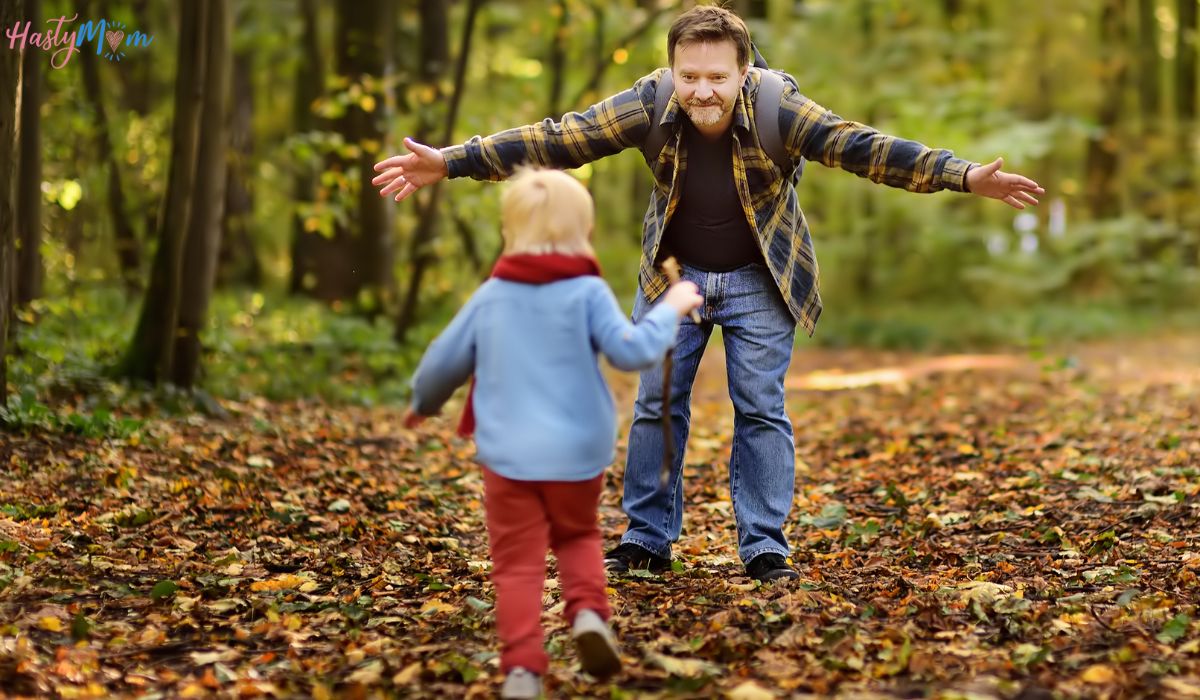Embarking on an outdoor adventure with a little one in tow can be an incredibly rewarding experience, but it also comes with its unique set of challenges. How to hike with a toddler is a topic that many adventurous parents are keen to explore, seeking tips and strategies to make the journey enjoyable for the whole family. Whether you’re an experienced hiker looking to adapt your treks for a tiny companion, or a new parent aiming to instill a love of nature in your child from a young age, this blog post is designed to guide you through the essentials of toddler-friendly hiking.
From selecting the right gear to understanding the pace and needs of your child, we will delve into the practicalities of creating a memorable and stress-free hiking experience. Read on to find out.
How to Hike With a Toddler
Joys of Hiking with Toddlers

- Discovery Through Their Eyes: Everything is new and exciting for toddlers. Witnessing their wonder as they encounter wildlife, plants, and new textures is priceless.
- Bonding Time: Hiking offers quality time with your little ones, away from the distractions of daily life.
- Physical Activity: It’s a great way for them to burn energy and for you to get a workout by carrying them or their gear.
- Teaching Moments: The trail is a perfect classroom for teaching about nature, patience, and perseverance.
Challenges of Hiking with Toddlers
- Pace: Toddlers naturally move slower and have shorter attention spans, requiring frequent breaks.
- Safety: The great outdoors presents risks like uneven terrain and bodies of water that need constant vigilance.
- Gear: Carrying extra supplies like diapers, snacks, and change of clothes can make the hike more cumbersome.
- Meltdowns: Toddlers can be unpredictable. Fatigue or overstimulation can lead to tantrums.
Importance of Connecting Children with Nature
- Development: Nature stimulates a child’s development in unique ways, enhancing sensory skills, creativity, and problem-solving.
- Health: Early exposure to green spaces has been linked to better physical and mental health.
- Conservation: Respect and love for the environment are values best learned through firsthand experience.
Understanding Your Toddler’s Needs
Toddlers are known for their unpredictable behavior, especially when taken on hikes. Here are some reasons why their behavior can be so unpredictable:
1. Curiosity: Toddlers are naturally curious, and this can lead them to wander off the trail or stop frequently to inspect plants, rocks, or insects.
2. Energy Levels: Toddlers can go from full of energy to tired and cranky in a matter of minutes, making it difficult to predict how far they can hike without getting worn out.
3. Mood Swings: Toddlers’ moods can change rapidly, and they may go from happily exploring to having a meltdown in no time.
4. Safety Concerns: Their lack of understanding of potential dangers can lead to unpredictable behavior, such as running ahead or trying to touch wildlife.
5. Personal Preferences: Toddlers have their own preferences, and they may suddenly decide they don’t want to walk anymore or want to be carried.
Pre-Hike Preparation
Before heading out on a hike with toddlers, it’s essential to undertake thorough pre-hike preparation to ensure a safe and enjoyable experience for the entire family.
Choosing the Right Trail
Factors to Consider:

- Terrain: Opt for trails with smooth, well-maintained paths suitable for strollers or easy walking.
- Distance: Shorter trails with minimal elevation gain are ideal for young children.
- Elevation: Avoid trails with steep inclines that might be challenging for toddlers.
Researching Family-Friendly Trails:
- Utilize family hiking websites, apps, or local hiking groups to discover trails specifically recommended for families with young children.
- Read reviews and trail descriptions to gauge the suitability of the trail for toddlers.
Packing Essentials
Toddler-Specific Hiking Gear Checklist:

- Sturdy Stroller or Child Carrier: Ensure it is suitable for off-road terrain.
- Sun Protection: Hat, sunscreen, and sunglasses to shield toddlers from the sun’s rays.
- Snacks and Water: Keep your little ones well-fed and hydrated throughout the hike.
- Diaper Bag: Stock it with essentials for diaper changes and clean-ups.
- Extra Clothing: Pack spare clothes in case of spills or unexpected weather changes.
Safety Items and First Aid:
- First Aid Kit: Include band-aids, antiseptic wipes, tweezers, and any necessary medications.
- Emergency Whistle: Carry a whistle in case you need to signal for help.
What to Wear
Dressing Toddlers for Different Weather Conditions:

- Layering: Dress toddlers in layers to accommodate temperature fluctuations.
- Weather-Appropriate Clothing: Choose clothing suitable for the forecasted weather, whether it’s sunny, rainy, or windy.
Importance of Comfortable Footwear:
- Ensure toddlers wear comfortable, closed-toe shoes suitable for walking on various terrains.
- Consider waterproof or water-resistant footwear if the trail includes water crossings or wet areas.
By carefully considering the trail, packing essential items, and dressing toddlers appropriately, families can set the stage for a safe and enjoyable hiking experience with young children.
During the Hike
Setting the Pace
- Letting the toddler set a comfortable pace: It’s important to allow the toddler to set the pace, as they may not be able to cover long distances at a stretch.
- Balancing rest periods with active hiking: Plan for frequent breaks to rest and explore, and make sure to balance them with active walking to keep the momentum going.
Engagement and Entertainment

- Ideas for making the hike fun and engaging: Encourage the toddler to interact with nature by pointing out animals, plants, and interesting features along the trail. You can also bring along a small toy or book to keep them engaged.
- Games and educational activities to do while hiking: Simple games like “I Spy” or “Simon Says” can keep the toddler entertained. Additionally, use the opportunity to teach them about the environment and nature they see around them.
Safety First
- Keeping your toddler close and within sight: Always keep your toddler within arm’s reach, especially in areas with challenging terrain or near water bodies.
- Discussing basic safety rules with your child: Before the hike, have a conversation about staying on the trail, not touching unknown plants or animals, and what to do if they get separated from the group.
Handling Challenges
Dealing with Tantrums
When it comes to preventing and handling toddler meltdowns during hiking, there are several strategies that can be employed:
- Be Prepared: Ensure that the toddler is well-rested, fed, and comfortable before setting out on the hike.
- Set Realistic Expectations: Understand the limitations of the toddler and plan the hike accordingly, considering their stamina and interests.
- Bring Distractions: Pack some of the toddler’s favorite toys, books, or snacks to provide distractions when needed.
- Offer Choices: Allow the toddler to make simple choices along the way, such as which trail to take or which snack to eat, to give them a sense of control.
- Stay Calm: If a tantrum does occur, try to remain calm and offer reassurance to the toddler. Taking a break and providing comfort can help settle them down.
Post-Hike Tips
Post-Hike Relaxation and Recovery for Toddlers

After an exhilarating hike, it’s essential to help your toddler relax and recover. Here are some suggestions for post-hike relaxation:
- Hydration and Nutrition:
- Offer plenty of water to keep your toddler hydrated.
- Provide nutritious snacks to replenish energy levels.
- Rest and Comfort:
- Encourage your toddler to rest and nap if they’re tired.
- Comfort them with a warm bath or gentle massage to soothe tired muscles.
- Gentle Activities:
- Engage in quiet, low-energy activities such as reading books or drawing.
- Listen to calming music together to promote relaxation.
- Outdoor Play:
- If weather permits, spend some quiet time in a natural outdoor setting, such as a park or garden, to unwind further.
You might also be interested in:
How to Travel with a Toddler: What Every Parent Needs To Know
Beach Essentials for Toddlers: What You Need for a Fun and Safe Day Out

